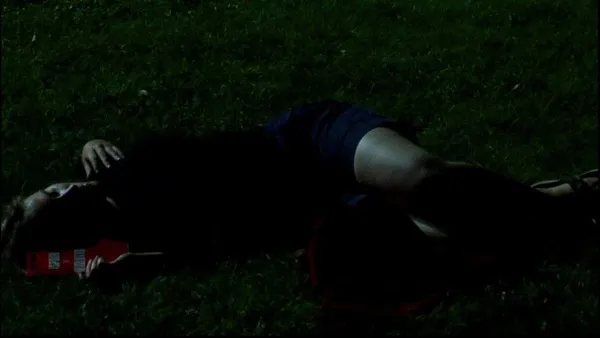Eye For Film >> Movies >> The Dream And The Radio (2022) Film Review
The Dream And The Radio
Reviewed by: Dora Leu

I will often exclaim about some films that they have creatively adapted to the more recent questions regarding the nature of cinema and that they belong so evidently to a new front of tenacious filmmaking: “Finally, a film of my times”. Yet, being a hybrid between modern and older cinematic language, Ana Tapia Rousiouk and Renaud Després-Larose’s The Dream And The Radio also seems to go beyond our times, in an ambitious formal experiment that seems like a perfect contemporary example of what Peter Wollen would have called ‘counter cinema’. It employs devices of estrangement, reflexivity - an intellectual melting pot of fiction and reality.
Closer to an essay film and far from classic fiction, The Dream And The Radio calls to mind the political and iconoclastic spirit of Godard in the 70s. Cinema is the political text itself, in terms of story but also of style. Raoul (explicitly also named Debord), an agitator ‘with a mission’, meets melancholic flâneuse Beatrice on the metro. Beatrice’s friends are a couple, Constance, who broadcasts political sound art on the radio, and Eugène, a writer struggling to finish his book. Constance’s musings about the small to great revolutions she could make in her life – and so, in the life she has with Eugène – invoke many Godardian qualities, perhaps most similarly to Struggle In Italy (1971). The references to May ‘68 and the situationists, as well as quotes from Guy Debord also complete that landscape.

Were it not for the mobile phones, the screens and social media, it would be hard to place the film’s fragmentary action in a specific time. The Academy ratio (that is cleverly broken from time to time) says old, yet insertions of video and video style glitches say new. In a mix of visual and audio textures, Tapia Rousiouk and Després-Laros create an extremely enjoyable ambiguity, in tune with the stream of consciousness-like discourse of the characters, but also producing a reflexive commentary on the medium of cinema.
The Dream And The Radio makes use of footage that feels like film, as well as video, found footage, as well as personal archives. It is unclear what is constructed and what is not. Filmed theatre, abstract experiment, even silent film at times; poetic cinema, political cinema, and also perhaps autobiographical cinema – as the directors appear as themselves (as voices) and also play two of the characters. Yet do not, at times, those lines between director and character blur? Text and slogans, commercials and markers of consumer culture.
Much like a dream, The Dream And The Radio is hard to pin-point. The inability to perfectly define the film is most welcome – it is a beautiful expression of how, nowadays, so many types of audio-visual material insert themselves into our lives and often converge, sometimes poetically, other times confusingly. On the note of audio, via the pretext of Constance’s work at the radio stations, I do have to say the film features one of the more ingenious uses of sound (and of sound distortion) I have heard in recent films.
An absolute pleasure for a cinephile, The Dream And The Radio is keen to observe ideas that have recently permeated discourse about cinema, yet, equally, by taking us through so many styles, it seems to pay homage to experimental filmmaking ever since the beginning of cinema. While for some it may seem a bit too intellectual, Ana Tapia Rousiouk and Renaud Després-Larose’s undertaking to deconstruct modern film language and images prove that a militant, ambitious and cerebral cinema is still alive and well.
Reviewed on: 28 Jan 2022















